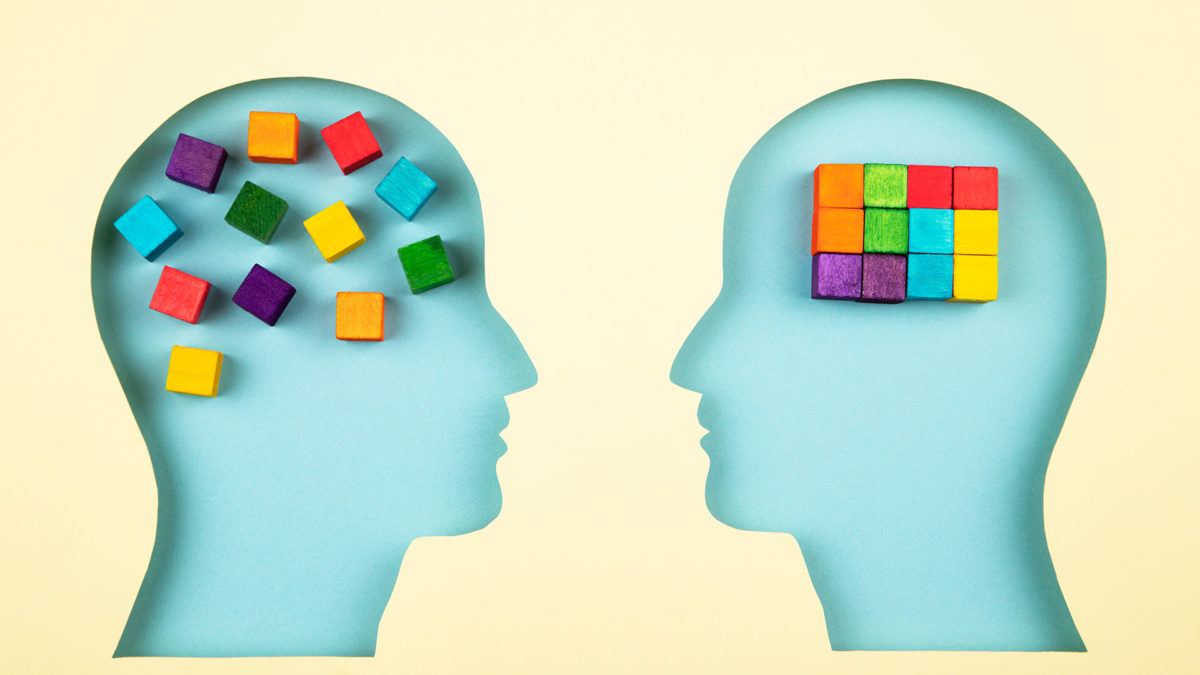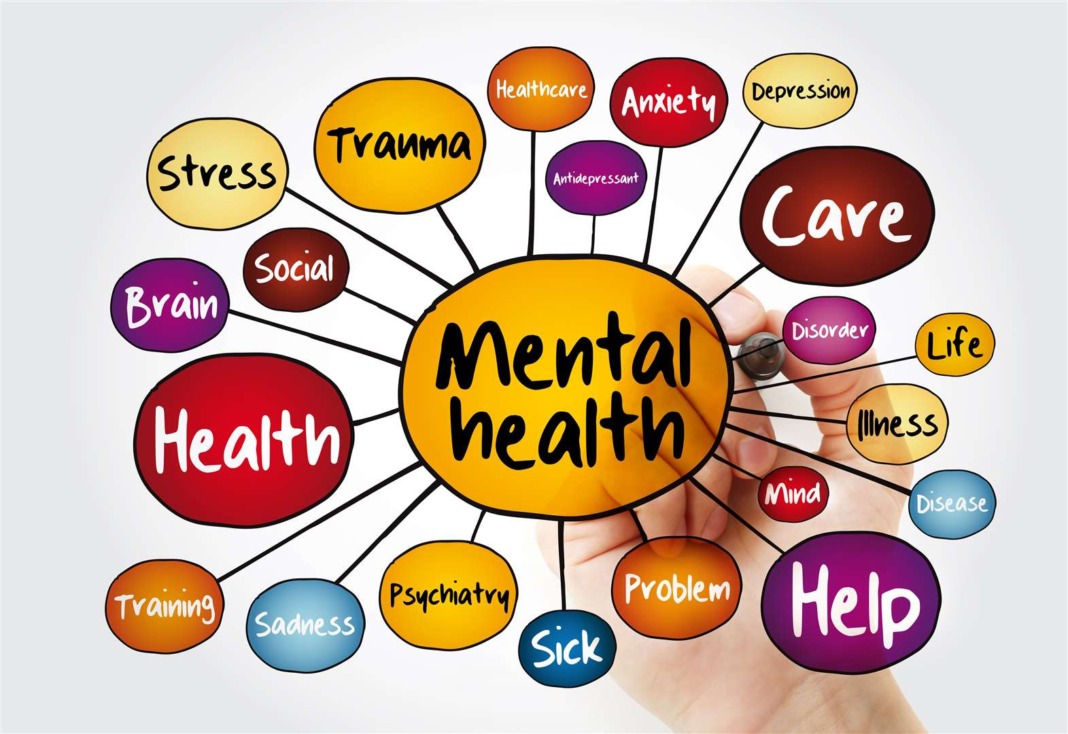Mental health is a vital aspect of our overall well-being, and just like physical health, it requires attention and care. Unfortunately, mental health issues are still stigmatized in many parts of the world. However, there has been an upsurge of mental health organizations working tirelessly to improve access to mental healthcare services, create awareness, provide support, and advocate for better mental health care. In this article, we’ll explore some of the leading mental health organizations in the United States.
In recent years, there has been a significant increase in the number of mental health organizations sprouting up across the country. These organizations aim to address the growing concern for better mental health support systems catering to individuals suffering from different mental illnesses.
With their unique approaches and resources, these groups have helped bridge the gap between those living with mental disorders and the much-needed help they require. The work being done by these organizations cannot be overemphasized, as they continue to provide critical services such as emotional support helplines, counseling sessions, rehabilitation programs, and more.
The efforts put forth towards destigmatizing mental illness have also led to increased conversations around mental health’s public sphere. Consequently, this article seeks to highlight some notable Mental Health Organizations making strides in improving lives through various initiatives aimed at addressing mental wellness concerns.
Mental health organizations play a pivotal role in supporting individuals, families, and communities in navigating the complexities of mental health challenges. Let’s delve into what these organizations do and how they make a difference.
Understanding Mental Health
![]()
Understanding mental health can be likened to unraveling a complex puzzle with numerous layers. It is no secret that the topic of mental health has been somewhat shrouded in secrecy for quite some time, and this has led to widespread ignorance about it among people. However, the need to address this issue cannot be overemphasized, as poor mental health can have far-reaching consequences for individuals and society at large.
To fully grasp what mental health means, one needs to understand how culture, beliefs, and social norms influence its perception. Sadly, in some parts of the country, many people still view mental illness as a taboo subject or something that should be hidden from public knowledge.
This attitude often leads to stigmatization and discrimination against affected persons, which further exacerbates their condition. To tackle this challenge head-on and promote awareness, various Mental Health Organizations have emerged across the country.
Mental Health Organizations play an essential role in providing support services such as counseling, therapy sessions, and medication administration for those facing challenges related to their mental well-being.
They also engage in advocacy programs aimed at removing the stigma from conversations about mental health by organizing seminars, workshops, and sensitization campaigns targeted toward schools and community groups.
With these valuable initiatives being implemented by different organizations across the USA, there’s hope that more people will become aware of the importance of good mental health practices, ultimately leading to better outcomes for everyone involved.
Services Offered By Mental Health Organizations
Counseling and Therapy: A lot of mental health organizations provide services for counseling and therapy, where qualified experts support people with mental health concerns. To accommodate a range of needs, these sessions can be held in groups, one-on-one, or even virtually.
Education and Awareness: These groups work to spread knowledge about mental health concerns, lessen stigma, and foster acceptance and understanding. To promote mental health literacy, they hold workshops, seminars, and instructional programs in companies, communities, and schools.
Helplines and Hotlines: People in need of emergency assistance and crisis intervention can reach out to mental health organizations through helplines and hotlines. Professionals or trained volunteers provide supportive listening, direction, and pointers to relevant resources.
Support Groups: Support groups unite people who are going through comparable difficulties and offer a secure setting for exchanging stories, coping mechanisms, and encouragement from one another. Those who feel alone or misinterpreted may find these organizations very helpful.
Advocacy and Policy Work: Mental health organizations fight for laws and policies that enhance mental health services and resources, safeguard the rights of those who suffer from mental diseases, and encourage access to mental health care.
Research and Innovation: To improve prevention tactics, produce better therapies, and deepen our understanding of mental health illnesses, several organizations provide funding for research projects. Public health policies benefit from this research’s contribution to evidence-based practices.
Mental Health Organizations
Did you know that only 3% of Nigeria’s national budget is allocated to healthcare? This statistic becomes even more concerning when considering the state of mental health. Mental illnesses are often misunderstood and stigmatized, leading many individuals to suffer in silence without access to proper care or support. Thankfully, there are several mental health organizations working towards improving this situation.
1. National Alliance on Mental Illness (NAMI): The largest grassroots mental health group in the United States is called the National Alliance on Mental Illness (NAMI). The goal of NAMI is to improve the lives of the millions of Americans who suffer from mental illness. What you should know about NAMI is as follows:
- Regional Presence: More than 700 state groups and affiliates make up NAMI, which works in communities to promote awareness, offer support, and impart knowledge.
- Helpline: Families and individuals dealing with mental health issues can get information and one-on-one support from NAMI’s HelpLine, which can be reached at 1-800-950-6264. Additionally, you can chat online or text “helpline” to 62640.
- Advocacy: NAMI works to amend laws to enhance the availability and quality of mental health services.
2. Mental Health America (MHA): Mental Health America is a popular community-based nonprofit organization that uses support services, education, and advocacy to address the needs of people with mental illness and to advance mental health in general.
3. Active Minds: In college campuses around the US, Active Minds is a student-run group that encourages open communication about mental health, increases awareness, and supports behaviours related to getting help.
4. National Institute of Mental Health (NIMH): NIMH offers an online locator for mental health services, including helplines and tools for finding providers.
5. The Trevor Project: The Trevor Project provides a 24/7 helpline, counselling services, and instructional materials with an emphasis on suicide prevention and crisis intervention for LGBTQ+ youth.
6. Depression and Bipolar Support Alliance (DBSA): The Depression and Bipolar Support Alliance (DBSA) offers advocacy, educational materials, and peer-led support groups to those with depression and bipolar disorder, as well as their loved ones.
7. World Health Organization (WHO): WHO highlights the significance of mental health globally, although not specifically in relation to the United States. According to their definition, mental health entails being well, managing stress, and giving back to the community.
For starters, funding remains an ongoing issue as government support for healthcare continues to be limited. Additionally, a widespread lack of understanding regarding mental illnesses leads some communities to distrust these organizations’ efforts.
Lastly, COVID-19 has created additional difficulties with social distancing measures making it harder for people struggling with their mental health to receive help. Despite these obstacles facing them, the work being done by these organizations cannot be understated.
They serve as crucial lifelines for individuals battling against a variety of debilitating conditions ranging from depression all the way up to severe personality disorders such as schizophrenia or bipolar disorder.
In our next section, let us discuss further the challenges faced by these groups that prevent them from fully realizing their goals of creating a better future for those suffering from poor mental health today.
Challenges Facing Mental Health Organizations

Mental health organizations are facing a myriad of challenges that threaten their effectiveness and sustainability. These challenges range from inadequate funding, lack of government support, cultural beliefs, and stigma surrounding mental illness to the shortage of personnel with the required expertise.
Inadequate funding is one significant challenge faced by mental health organizations. Many of these organizations depend on external donations for survival, as there is little or no governmental support. This situation makes it difficult for them to carry out their activities effectively, leading to inadequate care for individuals who need help.
Another issue concerning mental health organizations is the lack of awareness about mental illness. Cultural beliefs and stigmatization towards people living with mental illnesses are common, which results in discrimination against those diagnosed with such conditions. The consequence of this ignorance means that many people continue to suffer silently without seeking professional help due to fear of being labeled insane.
Furthermore, the shortage of qualified personnel has made it challenging for these organizations to deliver quality services continually. Mental healthcare professionals like psychiatrists, psychologists, and social workers are scarce, making access to adequate treatment more problematic than ever before. This inadequacy often leads to long waiting times at clinics or hospitals with overwhelmed staff trying to manage high patient volumes.
To address the challenges facing mental health organizations properly, stakeholders must prioritize providing adequate funds, and raising awareness through education campaigns while encouraging an open dialogue about mental wellness within communities across the country.
It is also vital for governments at all levels to provide support so that effective policies can be implemented that will promote better outcomes for patients seeking treatment.
Ways To Support Mental Health Organizations
In most countries, mental health organizations are facing significant challenges, from inadequate funding to a lack of awareness and support for mental health issues. However, there are ways we can all help to support these vital organizations and the people they serve.
Like a tree that needs nourishment to grow strong, mental health organizations need our support to thrive. One way we can do this is by donating funds or volunteering our time. Every little bit helps; even a small donation can make a big difference in providing access to much-needed resources and services.
In addition to financial contributions, there are other ways we can lend our support. Here are five actionable steps everyone can take:
- Educate ourselves about mental health: By learning more about mental illness and its impact on individuals and communities, we can become better advocates for those who are struggling.
- Speak out against stigma: Mental health conditions continue to be stigmatized in many parts of society. We need to speak up when we hear insensitive comments or misinformation about mental health.
- Advocate for policy change: Policies around healthcare and social welfare often overlook mental health concerns. By advocating with policymakers at every level, we can push for changes that will improve access to care and reduce barriers.
- Support community-based initiatives: Many grassroots organizations exist across the country that work tirelessly to provide essential services like counseling, therapy sessions, and outreach programs. Supporting these groups through donations or volunteerism means supporting their clients too.
- Prioritise self-care: Taking care of one’s own physical and emotional well-being is critical if we hope to build resilient communities where people feel supported enough to seek help when needed.
In conclusion, while it may seem like an uphill battle at times, supporting mental health organizations is crucial not only for individual patients but also for the overall well-being of our communities. With determination, compassion, and action-oriented approaches such as those outlined above – no matter how small, collectively we have the power to bring positive change into existence.
Frequently Asked Questions on Mental Health Organizations

Q1: How common are mental illnesses in the United States?
Ans: NAMI advocates have performed more than 60,000 advocacy activities, proving the commonality of mental health problems. The mission of NAMI is to demonstrate that no one faces struggles alone.
Q2: How can I get help for mental health issues?
Ans: You can text “helpline” to 62640 or call the NAMI HelpLine at 1-800-950-6264 if you or someone you know is having difficulties. Dial or text 988 (available 24/7) in an emergency.
Q3: Are organizations dedicated to mental health just for those with diagnosed mental illnesses?
Ans: No, mental health organizations provide services for a variety of needs, such as support for those who are dealing with stress, anxiety, depression, or other mental health issues, even if they haven’t been officially diagnosed.
Q4: Do mental health groups offer confidential services?
Ans: Indeed, mental health organizations maintain anonymity as a core concept. Unless there is an immediate risk of harm to yourself or others, or unless there is a legal requirement to disclose, information discussed during therapy sessions or support group meetings is kept private and confidential.
Q5: How can I help mental health groups even though I don’t have a mental illness myself?
Ans: You can help mental health groups in a variety of ways, including by giving of your time, taking part in fundraising activities, speaking out in favour of mental health awareness, and teaching others and yourself about local resources and mental health issues.
Conclusion
In conclusion, mental health remains a critical issue that requires urgent attention. Mental health organizations like the National Alliance on Mental Illness (NAMI) are making significant strides in promoting awareness about mental health issues and providing support to those who need it.
As individuals, we can play our part by supporting these organizations through donations or volunteering to help raise awareness of mental health issues in our communities. Let us not turn a blind eye to this pressing matter – let’s take action to support those struggling with their mental well-being. Together, we can create an environment where everyone has access to adequate care and support for their mental health needs.



